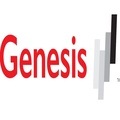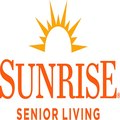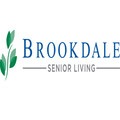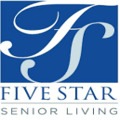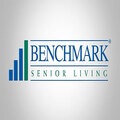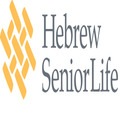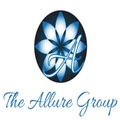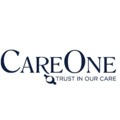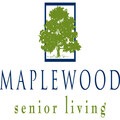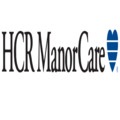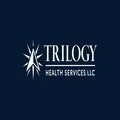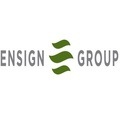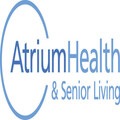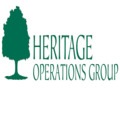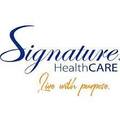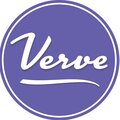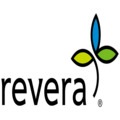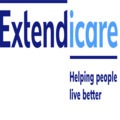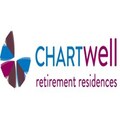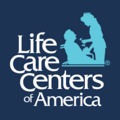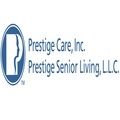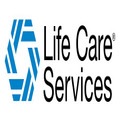
Index
Applications & Benefits of GAO’s RFID, BLE, IoT & Drones for Nursing Care Facilities industry
GAO’s Assists Clients with Standards, Mandates & Regulations of Nursing Care Facilities industry
GAO Software Provides Easy Integration with API
Case Studies of RFID, IoT & Drone Applications
GAO RFID Systems & Hardware for Nursing Care Facilities Industry
Overview
The Nursing Care Facilities industry encompasses residential establishments that offer skilled medical care, supervision, and assistance to individuals with intricate medical conditions, disabilities, and advanced age. Unlike retirement communities, these facilities provide a higher level of care for those requiring constant medical attention. Staffed with licensed nurses and healthcare professionals, they deliver 24/7 support, administer medications, and manage health conditions. With diverse services including rehabilitation therapy, personalized care plans, and social activities, these facilities ensure the safety, well-being, and engagement of residents. Despite facing challenges like staffing and regulatory compliance, the industry’s role in providing specialized care remains pivotal in addressing the healthcare needs of an aging population.
GAO’s RFID, BLE, IoT, and drone technologies have helped its customers in Nursing Care facilities Industry to improve their work processes, their operations and productivity by better management of their staff, materials and operational equipment such as Hospital beds, wheelchairs, walkers, patient lifts, vital signs monitors, oxygen concentrators, shower chairs, bed alarms, exercise equipment, wound care supplies, medication dispensers, gloves, feeding tubes, call bells, intercom systems, arts and crafts supplies, electronic health records (EHR) software, fire alarms, cleaning supplies, and personal protective equipment (PPE).
Ranked as a top 10 global RFID supplier and based in New York City and Toronto, GAO RFID Inc offers a wide choice of RFID (radio frequency identification) readers and tags at ultra-high frequency (UHF), high frequency (HF, including NFC) and low frequency (LF), BLE (Low Energy Bluetooth) gateways and beacons, and various RFID and BLE systems such as people tracking, asset tracking, access control, parking control, fleet management, WIP (work in progress), traceability. Such RFID and BLE products and systems, together with its IoT and drone technologies, have been widely used in the Nursing Care facilities Industry. Its sister company, GAO Tek Inc. https://gaotek.com, is a leading supplier of industrial or commercial testers and analyzers, drones, and network products.
The targeted markets of both GAO RFID Inc. and GAO Tek Inc. are North America, particularly the U.S., Canada, Mexico, and Europe. As a result, this website gaorfid.com is offered in English and other major languages of North America and Europe such as Spanish, French, German, Italian, Polish, Ukrainian, Romanian, Russian, Dutch, Turkish, Greek, Hungarian, Swedish, Czech, Portuguese, Serbian, Bulgarian, Croatian, Danish, Finnish, Norwegian, Slovak, Catalan, Lithuanian, Bosnian, Galician, Slovene, Latvian, Estonian, Welsh, Icelandic, and Irish.
Applications & Benefits of GAO’s RFID, BLE, IoT & Drones for Nursing Care Facilities industry

To satisfy its customers, GAO’s RFID or RFID Systems for Nursing Care facilities Industry are offered in 2 versions. One version is that its software is running on a local server that normally is on our client’s premises, and another version runs in the cloud. The cloud server could be GAO’s cloud server, client’s own cloud server or a cloud server from one of the leading cloud server providers such as Amazon Web Services (AWS), Microsoft Azure, Google Cloud, IBM Cloud (formerly SoftLayer), Oracle Cloud, RedHat, Heroku, Digital Ocean, Cloudflare, Linde and Rackspace. The above illustrates GAO system for Nursing Care facilities Industry with its software running on a local server.

The above illustrates GAO system for Nursing Care facilities Industry with its software running in cloud.
GAO’s RFID and BLE technologies, consisting of RFID readers, RFID tags, BLE gateways, BLE beacons, software, cloud services and their systems, have the following applications in Nursing Care Facilities industry:
- Resident Identification: RFID wristbands or cards can be used to accurately identify residents, ensuring that they receive the correct medications, treatments, and care.
- Medication Management: RFID can be employed to track and manage medication administration, reducing errors and improving compliance with medication schedules.
- Asset Tracking: Nursing care facilities can use RFID to track medical equipment, wheelchairs, and other assets, ensuring they are readily available when needed.
- Fall Prevention: RFID-enabled bed and chair alarms can alert staff when a resident attempts to leave their bed or chair without assistance, helping prevent falls.
- Access Control: RFID can control access to restricted areas within the facility, ensuring that only authorized personnel can enter sensitive areas like medication storage rooms.
- Wandering Resident Management: RFID tags on residents can trigger alerts if they approach exits or areas where they shouldn’t be, helping prevent wandering incidents.
- Personalized Care Plans: RFID can provide access to personalized care plans for each resident, ensuring that caregivers have up-to-date information on individual needs and preferences.
- Inventory Management: RFID technology can streamline inventory management of supplies like incontinence products and wound care items, helping maintain adequate stock levels.
- Hygiene Monitoring: RFID systems can help monitor hand hygiene compliance among staff to reduce the risk of infections spreading within the facility.
- Meal Service: RFID tags can be used to track resident meal preferences, dietary restrictions, and delivery times for personalized and efficient meal service.
- Emergency Response: RFID-enabled panic buttons or wearable devices can allow residents and staff to quickly summon assistance in case of emergencies.
- Visitation Monitoring: RFID systems can track visitors’ movements within the facility, enhancing security and ensuring that visitors are in authorized areas.
- Staff Monitoring: RFID badges worn by staff members can help monitor their movements and activities, assisting in optimizing staffing levels and response times.
- Laundry Tracking: RFID tags on resident clothing and linens can aid in tracking laundry cycles, ensuring residents have clean and appropriate clothing.
- Temperature Monitoring: RFID sensors can monitor room temperatures, helping maintain a comfortable environment for residents.
- Elopement Prevention: RFID technology can be used to prevent residents from leaving the facility unnoticed, reducing the risk of elopement.
- Behavioral Monitoring: RFID systems can track residents’ daily routines and behaviors, aiding caregivers in providing personalized care and addressing changes in behavior.
GAO’s drone technologies find the following applications in Nursing Care facilities Industry:
- Surveillance and Security: Drones can monitor the premises and provide real-time video feeds to security personnel, enhancing facility security and reducing the risk of unauthorized access.
- Emergency Response: Drones equipped with medical supplies or defibrillators can quickly reach remote areas of the facility or outdoor spaces during emergencies, delivering essential aid before on-site personnel arrive.
- Environmental Monitoring: Drones equipped with sensors can monitor air quality, temperature, and humidity levels within the facility, ensuring optimal living conditions for residents.
- Facility Maintenance: Drones can inspect rooftops, gutters, and other areas that are difficult to access, aiding in proactive maintenance and reducing potential hazards.
- Inventory Management: Drones can assist in tracking and managing inventory levels of medical supplies and other essentials, helping staff ensure that stock is maintained adequately.
- Outdoor Activities: Drones can capture aerial views of outdoor activities, allowing residents with limited mobility to experience events and outings virtually.
- Communication and Entertainment: Drones can facilitate virtual communication between residents and their families by acting as mobile video conferencing platforms.
- Recreation and Engagement: Drones can be used for interactive games and activities, promoting physical and mental engagement among residents.
- Medication Delivery: Drones can transport medications from the pharmacy to the facility, expediting the delivery process and ensuring timely availability.
- Safety Inspections: Drones can perform safety inspections of outdoor pathways and walkways, identifying potential hazards that might affect resident mobility.
- Social Connection: Drones can facilitate social interactions by allowing residents to engage in friendly competitions, events, or conversations with each other from a distance.
- Cognitive Stimulation: Drones can be integrated into cognitive therapy activities, offering residents challenges and tasks that promote mental engagement.
- Outdoor Exercise Support: Drones can guide outdoor exercise sessions, providing visual cues and instructions to residents participating in group activities.
- Documentation and Marketing: Drones can capture high-quality images and videos for promotional material, showcasing the facility’s amenities and creating a positive impression for potential residents and their families.
- Landscaping and Gardening: Drones can aid in monitoring and maintaining outdoor landscaping, ensuring that gardens and green spaces are well-tended.
GAO’s IoT technologies, consisting of IoT sensors, sensors networks and systems, find the following applications in Nursing Care facilities Industry:
- Remote Health Monitoring: IoT devices can collect and transmit residents’ vital signs, allowing caregivers to remotely monitor health conditions and detect abnormalities in real time.
- Medication Management: Smart pill dispensers and medication tracking systems can ensure residents take their medications on schedule and alert caregivers in case of missed doses.
- Fall Detection and Prevention: IoT sensors can detect sudden movements or falls, sending alerts to staff so they can provide immediate assistance.
- Wandering Prevention: Wearable IoT devices can track residents’ locations within the facility, sending alerts if they approach exit areas or unsafe zones.
- Environmental Monitoring: IoT sensors can monitor room temperature, humidity, and air quality, ensuring a comfortable and healthy living environment.
- Smart Beds: Beds equipped with IoT sensors can adjust mattress firmness, monitor sleep patterns, and provide alerts if residents stay in bed for extended periods.
- Activity Tracking: Wearable devices can track residents’ physical activity levels, encouraging mobility and helping caregivers monitor overall wellness.
- Predictive Analytics: IoT data can be used to predict potential health issues, allowing caregivers to intervene early and provide proactive care.
- Emergency Response: IoT panic buttons and wearable devices can quickly alert staff during emergencies, enabling rapid response.
- Nutrition Monitoring: IoT devices can track residents’ dietary intake and preferences, helping staff customize meal plans and ensuring proper nutrition.
- Personalized Care Plans: IoT systems can provide caregivers with real-time insights into each resident’s care plan, ensuring consistent and tailored care.
- Communication Enhancement: IoT devices can facilitate communication between residents and staff, allowing residents to request assistance or interact with caregivers.
- Hygiene Monitoring: IoT sensors can track hand hygiene compliance among staff and residents, reducing the risk of infections spreading.
- Energy Management: IoT systems can optimize energy consumption by adjusting lighting, heating, and cooling based on occupancy and preferences.
- Asset Tracking: IoT tags can be attached to medical equipment, wheelchairs, and other assets for efficient tracking and management.
- Smart Safety Alarms: IoT-enabled alarms can detect smoke, fire, or gas leaks, alerting staff and residents to potential dangers.
- Cognitive Stimulation: IoT devices can offer interactive games and activities that stimulate cognitive function among residents.
- Staff Monitoring: IoT solutions can track staff movements, optimizing workflows and ensuring timely response to resident needs
GAO’s Assists Clients with Standards, Mandates & Regulations of Nursing Care Facilities industry
GAO RFID Inc. has developed its products and systems in compliance with industry standards and mandates. GAO has assisted our customers in Nursing Care facilities Industry to deploy RFID, BLE, IoT and drone systems and to ensure such deployments complying with applicable industry standards, U.S. government regulations and Canadian government regulations such as:
RFID, BLE, IoT, & Drone Standards & Mandates
- ISO 18000 Series
- ISO 15693
- ISO 11784/11785
- IEC 62351
- DICOM (Digital Imaging and Communications in Medicine)
- ASTM E2567
- HL7 (Health Level Seven)
- AIDC (Automatic Identification and Data Capture) RFID Guidelines
- CEN/TS 16654
- ISO/IEC 29167
- Bluetooth Health Device Profile (HDP)
- Bluetooth Asset Tracking Profile
- IEEE 11073-20601
- Continua Health Alliance Guidelines
- HL7 (Health Level Seven)
- Apple HealthKit
- Google Fit
- ISO/IEC 30141
- ISO/IEC 27030
- IEEE 802.15.4
- IEEE 802.11ah (Wi-Fi Hallow)
- ETSI EN 303 645
- ITU-T Y.2060
- HL7 (Health Level Seven)
- OMA Lightweight M2M (LwM2M)
- OneM2M
- Continua Health Alliance
- ISO/IEC 29183-1
- ISO/IEC 18013-5
- ASTM F3005
- ASTM F3322
- ISO 21384
- ISO 23629
- ISO 23637
- ISO 23640
- ISO 23641
Government Regulations
- Medicare and Medicaid Programs: Requirements for Long-Term Care Facilities
- HIPAA Privacy Rule
- Emergency Preparedness Requirements for Medicare and Medicaid Participating Providers and Suppliers
- Patient Protection and Affordable Care Act; Requirements for Long-Term Care Facilities
- Nursing Home Reform Act
- Elder Justice Act
- Clinical Laboratory Improvement Amendments (CLIA)
- Americans with Disabilities Act (ADA)
- Occupational Safety and Health Administration (OSHA) Standards for Healthcare
- Dietary Guidelines for Americans (as they relate to patient nutrition)
Canadian Government Regulations
- Personal Care Homes Act (Manitoba)
- Continuing Care Health Service Standards (Alberta)
- Nursing Homes Act (Newfoundland and Labrador)
- Residential Care Facilities Regulation (British Columbia)
- Health Services and Facilities Act (Nova Scotia)
- Long-Term Care Facilities Licensing Act (Saskatchewan)
- Health Care Institutions Regulation (Quebec)
- Nursing Homes and Residential Care Facilities Regulations (Prince Edward Island)
- Personal Care Homes Regulations (New Brunswick)
GAO Software Provides Easy Integration with API
GAO’s RFID and BLE software offers a free trial for both the server-based and cloud versions, and offers an API to the important systems in Nursing Care facilities Industry such as:
Personnel Management:
- Employee Scheduling and Shift Management
- Staff Training and Certification Tracking
- Payroll and Compensation Management
- Performance Evaluation and Appraisals
- Time and Attendance Tracking
- Health and Safety Compliance Training
- Staff Communication and Collaboration Tools
Equipment Management:
- Medical Equipment Inventory Tracking
- Preventive Maintenance Scheduling
- Equipment Utilization Monitoring
- Equipment Calibration and Certification Tracking
- Equipment Repair and Replacement Planning
- Asset Tagging and Identification
- Equipment Lifecycle Management
Access Control:
- Patient and Resident Access Monitoring
- Secure Entry and Exit Points
- Visitor Management and Logging
- Electronic Locking Systems
- RFID-Based Access Control
- Biometric Authentication Systems
- Surveillance and Security Integration
Warehouse Management:
- Medical Supply Inventory Management
- Reorder Point Monitoring
- Stock Rotation and Expiry Management
- Automated Replenishment Systems
- Barcode and RFID Scanning for Inventory
- Space Optimization and Layout Planning
- Demand Forecasting and Inventory Planning
Supply Chain Management:
- Supplier Relationship Management
- Procurement Automation
- Supplier Performance Tracking
- Demand Forecasting and Planning
- Order Management and Tracking
- Vendor Evaluation and Selection
- Cost Control and Budgeting
Other Applications:
- Patient Health Records Management
- Medication Administration and Tracking
- Telemedicine and Remote Patient Monitoring
- Meal Planning and Nutrition Management
- Laundry and Linen Management
- Resident Activities and Engagement Tracking
- Emergency Response and Evacuation Planning
GAO has enabled its customers to make use of some of the leading software and cloud services in Nursing Care facilities Industry. Below are some of the popular software and cloud services in the Nursing Care facilities Industry.
Dude Solutions, Asset Panda, Fix, emit CMMS, Upkeep, and Hippo CMMS. These solutions aid in efficiently tracking, maintaining, and managing equipment assets. Other widely used choices include Manager Plus, Maintenance Connection, Micro Main, and Impulse, Workday, Oracle HCM Cloud, SAP SuccessFactors, BambooHR, and Kronos Workforce Ready. Additionally, platforms like ADP Workforce Now, Paycor, Zenefits, UKG Pro, and Paycom offer comprehensive solutions for HR management, payroll, and personnel tracking. CMMS, Upkeep, and Hippo CMMS. These services assist in efficiently tracking and maintaining equipment assets. Other notable options include Manager Plus, Maintenance Connection, Micro Main, and IBM Maximo, often offered as cloud-based solutions, Kisi, HID Global, Paxton, and SALTO Systems. Honeywell Access Control, Genetec Security Center, AMAG Technology, Open path, and Johnson Controls Tyco are also recognized providers in this category. Fishbowl Warehouse, Zoho Inventory, Trade Gecko,3PL Warehouse Manager, SAP Extended Warehouse Management (EWM), Manhattan Associates Warehouse Management, and Oracle Warehouse Management Cloud offer comprehensive solutions for inventory and warehouse optimization. SAP Ariba, Oracle SCM Cloud, JDA Software, Kinaxis RapidResponse, and GEP SMART. Blue Yonder (formerly JDA Software), Logility, Infor Nexus, IBM Sterling Supply Chain Suite, and Elemica are also well-regarded providers for enhancing supply chain visibility and efficiency.
GAO has worked with some of the leading technology companies in the Nursing Care facilities Industry to provide integrated RFID, BLE, IoT and drone solutions to customers. Here are some of the technology leaders in Nursing Care facilities Industry: Here is a list of leading information technology companies that provide solutions and services for the Nursing Care Facilities industry Yardi Systems, HealthMed, Intellitec Solutions, ResMed, PharMerica, and Hyland Software. Philips Healthcare, Hill-Rom Holdings, STANLEY Healthcare, Rauland (a division of AMETEK), Panasonic Healthcare, Stryker Corporation, Eco Lane, Tunstall Healthcare, Care Innovations (part of Intel), Early Sense, Sengis tix, Early Warning Services, Well Sky (formerly Mediware Information Systems), Independen, Ascom, Biotronik, Masimo, Curbell Medical Products, and A&D Company.
Case Studies of RFID, IoT & Drone Applications
Case Studies of RFID Applications
Below are some RFID application cases in Nursing Care facilities Industry:
RFID tags on resident wristbands for accurate tracking within the facility, ensuring safety and preventing wandering. Case studies may cover how RFID technology helps in preventing elopement, enhancing resident security, and quick response during emergencies.
RFID-enabled medication dispensing systems for ensuring correct medication administration to residents. Case studies could demonstrate how RFID reduces medication errors, improves compliance, and streamlines the medication administration process.
RFID for tracking medical equipment, wheelchairs, and other assets within the facility. Case studies may highlight improved asset utilization, reduced loss, and efficient maintenance through RFID asset tracking.
RFID-enabled inventory systems for managing medical supplies and ensuring their availability. Case studies might showcase how RFID improves inventory accuracy, reduces stockouts, and enhances supply chain efficiency.
Check websites and publications of healthcare and technology associations related to nursing care facilities. They often feature case studies on technology implementations, including RFID. Magazines and journals such as Healthcare Technology Magazine might have relevant content.
Look for presentations or sessions related to RFID technology in healthcare at industry conferences and exhibitions. Events like HIMSS (Healthcare Information and Management Systems Society) often feature case studies.
Academic institutions often conduct research on healthcare technology implementations. Research papers and studies might provide valuable insights into real-world implementations.
Many applications of RFID by GAO can be found here:
Case Studies of IoT Applications
Below are some IoT application cases in Nursing Care Facilities Industry:
Check websites and publications of healthcare and technology associations related to nursing care facilities in Canada. They often feature case studies on technology implementations, including IoT. Magazines and journals such as “Canadian Healthcare Technology” might have relevant content.
Look for presentations or sessions related to IoT technology in healthcare at industry conferences and exhibitions in Canada. Events like Canada Health Info way’s Partnership Conference might feature case studies.
Companies that provide IoT solutions often publish case studies on their websites showcasing successful implementations. Look for IoT solution providers operating in Canada that specialize in healthcare applications.
Academic institutions in Canada might conduct research on healthcare technology implementations, including IoT. Research papers and studies might provide insights into real-world implementations.
Some websites offer databases of case studies in various industries. Examples include the Case Research Journal from the Ivey Business School in Canada.
Industry professionals in Canada might share their experiences and case studies on platforms like LinkedIn and industry-specific forums.
Case Studies of Drone Applications
Below are some drone application cases in Nursing Care Facilities Industry:
Drones could potentially be used to transport medical supplies, medications, and laboratory samples between different facilities or remote locations within a nursing care facility. They could improve efficiency by reducing the time required for transportation.
Drones equipped with cameras and sensors could provide real-time monitoring of patients within the facility, especially those at higher risk or requiring constant observation. This could aid the nursing staff in responding promptly to emergencies.
Drones could be used for surveillance and security purposes within nursing care facilities. They could provide an additional layer of monitoring for restricted areas and help prevent unauthorized access.
Drones could facilitate virtual interactions between residents and their families, especially during times when physical visits might be restricted. Video calls and virtual tours using drones could enhance emotional well-being.
Drones could assist residents in fetching items, such as a TV remote or a glass of water, from nearby locations within the facility. This could enhance resident independence and reduce the burden on nursing staff.
Drones could monitor environmental conditions such as temperature, humidity, and air quality within the facility to ensure residents’ comfort and well-being.
Drones could be deployed to quickly assess emergency situations, such as falls or accidents, and provide immediate assistance to residents.
GAO RFID Systems & Hardware for Nursing Care Facilities Industry
GAO RFID Inc. offers the largest selection of BLE gateways, BLE beacons, RFID readers, tags, antenna, printers, and integrated RFID systems for various industries, including Nursing Care Facilities Industry.
BLE (Bluetooth Low Energy)
GAO offers advanced BLE gateways:
as well as versatile beacons with such important functions as temperature, humility, vibration and panic button:
GAO’s BLE technology is suitable for many industries, including the Nursing Care Facilities Industry
UHF (Ultra High Frequency) RFID
GAO offers the largest selection of UHF RFID readers for various industries, including Nursing Care Facilities Industry:
GAO RFID offers the widest choice of UHF RFID tags, labels, badges, wristbands for various industries, including Nursing Care Facilities Industry:
and an array of antennas to address different applications:
HF (High Frequency), NFC (Near Field Communications) and LF (Low Frequency) RFID
GAO offers the largest selection of HF, NFC, and LF RFID readers for various industries, including Nursing Care Facilities Industry:
HF, NFC and LF RFID tags, labels, badges, wristbands for various industries, including Nursing Care Facilities Industry:
and antennas:
GAO also offers RFID printers:
Digital I/O adapters:
and relay controllers:
For embedded applications, GAO offers UHF, HF and LF RFID reader modules:
- UHF 860 – 960 MHz RFID Modules
- 13.56 MHz High Frequency RFID Modules
- 125 kHz Low Frequency RFID Modules
In collaboration with its sister company GAO Tek Inc, a wide selectioon of high quality drones are offered:
The RFID systems by GAO are highly popular for clients in Nursing Care Facilities Industry:
Physical asset or operational equipment tracking system:
Assets that can be effectively tracked using GAO’s technologies include
Hospital Beds, Overbed Tables, Patient Lifts, Wheelchairs and Mobility Aids, Recliners, Fall Prevention Alarms, Pressure Relief Mattresses, Commodes, Gait Belts, Feeding Tubes and Pumps, Oxygen Equipment, Suction Machines, Wound Care Supplies, IV Poles and Infusion Pumps, Physical Therapy and Rehabilitation Equipment.
People or workers tracking system:
Personnel or people access control system:
Parking or vehicle control system:
Furthermore, GAO provides the customization of RFID tags, RFID readers, BLE beacons and BLE gateways, IoT, drones, and systems and consulting services for Nursing Care Facilities Industry and for various industries in all metropolitans in North America, particularly the U.S., Canada and Mexico, and Europe:
GAO Makes Efforts to Satisfy Customers
Large Choice of Products
In order to satisfy the diversified needs of their corporate customers, GAO RFID Inc. and its sister company GAO Tek Inc. together offer a wide choice of RFID, BLE, IoT, drones, testing and measurement devices, and network products.
Overnight Delivery
In order to shorten the delivery to our customers, GAO has maintained a large stock of its products and is able to ship overnight within continental U.S. and Canada, and fast delivery to anywhere in Mexico and Europe from the nearest warehouse.
Local to Our Customers
We are located in both the U.S. and Canada. We travel to customers’ premises if necessary. Hence, we provide a very strong local support to our customers in North America, particularly the U.S., Canada and Mexico, and Europe. Furthermore, we have built partnerships with some integrators, consulting firms and other service providers in different cities to further strengthen our services. Here are some of the service providers in Nursing Care Facilities Industry we have worked with to serve our joint customers:
- Cerner Corporation
- Epic Systems Corporation
- Allscripts Healthcare Solutions
- McKesson Corporation
- Deloitte
- Cerner Corporation
- Epic Systems Corporation
- Accenture
- Allscripts Healthcare Solutions
- KPMG
- PwC (PricewaterhouseCoopers)
- Optum
- Cognizant
- Cerner Corporation
- Epic Systems Corporation
- Allscripts Healthcare Solutions
- Point Click Care
GAO Has Served Nursing Care Facilities Industry Extensively
GAO RFID Inc. and its sister company GAO Tek Inc. together offer a wide choice of RFID, BLE, IoT, drone, testing and measurement devices, and network products.
GAO’s products and technologies have helped its customers in Nursing Care Facilities Industry to achieve success in Telehealth and Telemedicine, Personalized Care, IoT and Smart Technology, Aging in Place, Fall Prevention and Detection, Wellness Programs, Data Analytics and Predictive Insights, Staff Training and Development, Robotics and Automation, Resident Engagement, Aging Population, Person-Centered Care, Long-Term Care, Resident-Centered Technology, Remote Patient Monitoring, Elderly-Friendly Design, Frailty Management, Dementia Care, Age-Friendly Communities, Home Health Care.
GAO RFID Inc. has served many customers in Nursing Care Facilities Industry including its various divisions such as
- Skilled Nursing Facilities (SNFs): These facilities provide 24/7 medical care, rehabilitation services, and assistance with activities of daily living (ADLs) for individuals recovering from surgeries, managing chronic illnesses, or needing long-term medical supervision.
- Assisted Living Facilities (ALFs): ALFs offer housing, personal care services, and social engagement for seniors who require assistance with ADLs but do not need intensive medical care. They focus on promoting independence and a higher quality of life.
- Memory Care Facilities: Specialized care facilities for individuals with Alzheimer’s disease, dementia, and memory-related conditions. These facilities have trained staff and tailored programs to address cognitive challenges and safety concerns.
- Continuing Care Retirement Communities (CCRCs): CCRCs provide a range of care levels within a single community, allowing residents to transition between independent living, assisted living, and skilled nursing care as their needs change.
- Residential Care Homes: Also known as group homes or board and care homes, these smaller settings offer a more intimate and home-like environment, providing personalized care and support for a limited number of residents.
- Hospice Care Facilities: These facilities focus on end-of-life care, providing pain management, emotional support, and comfort for individuals with terminal illnesses. The emphasis is on enhancing the quality of life during this period.
- Rehabilitation Centers: Facilities that specialize in physical, occupational, and speech therapy for individuals recovering from surgeries, injuries, or medical conditions. Their goal is to help patients regain mobility and functionality.
- Adult Day Care Centers: Centers that offer daytime care and social engagement for seniors, providing support and activities while their primary caregivers are at work or need respite.
- Palliative Care Facilities: Facilities that provide specialized medical care and support for individuals with serious illnesses, focusing on symptom relief, pain management, and improving overall quality of life.
- Home Health Care Agencies: While not traditional facilities, these agencies provide medical and non-medical services to individuals in their own homes, allowing them to receive care while remaining in familiar surroundings.
- Elder Care Professionals: Professionals who offer expertise in managing care plans, coordinating services, and advocating for the well-being of elderly clients. This includes geriatric care managers, patient advocates, and other specialized roles.
- Specialized Care Units within Hospitals: Many hospitals have dedicated units for long-term care, rehabilitation, or specialized services catering to elderly patients’ needs.
Here are some of the leading companies in Nursing Care Facilities Industry GAO has served:
- Genesis Healthcare
- Sunrise Senior Living
- Brookdale Senior Living
- Five Star Senior Living
- Benchmark Senior Living
- Erickson Living
- Hebrew SeniorLife
- The Allure Group
- CareOne Management
- Maplewood Senior Living
- HCR ManorCare
- Trilogy Health Services
- Ensign Group
- Atrium Health & Senior Living
- Friendship Village
- Franciscan Ministries
- Presbyterian Homes & Services
- Heritage Operations Group
- Life Care Services
- Good Samaritan Society
- Prestige Care
- Life Care Centers of America
- The Goodman Group
- Sienna Senior Living
- Chartwell Retirement Residences
- Extendicare
- Revera
- Bay Bridge Senior Living
- Verve Senior Living
- Signature Healthcare
